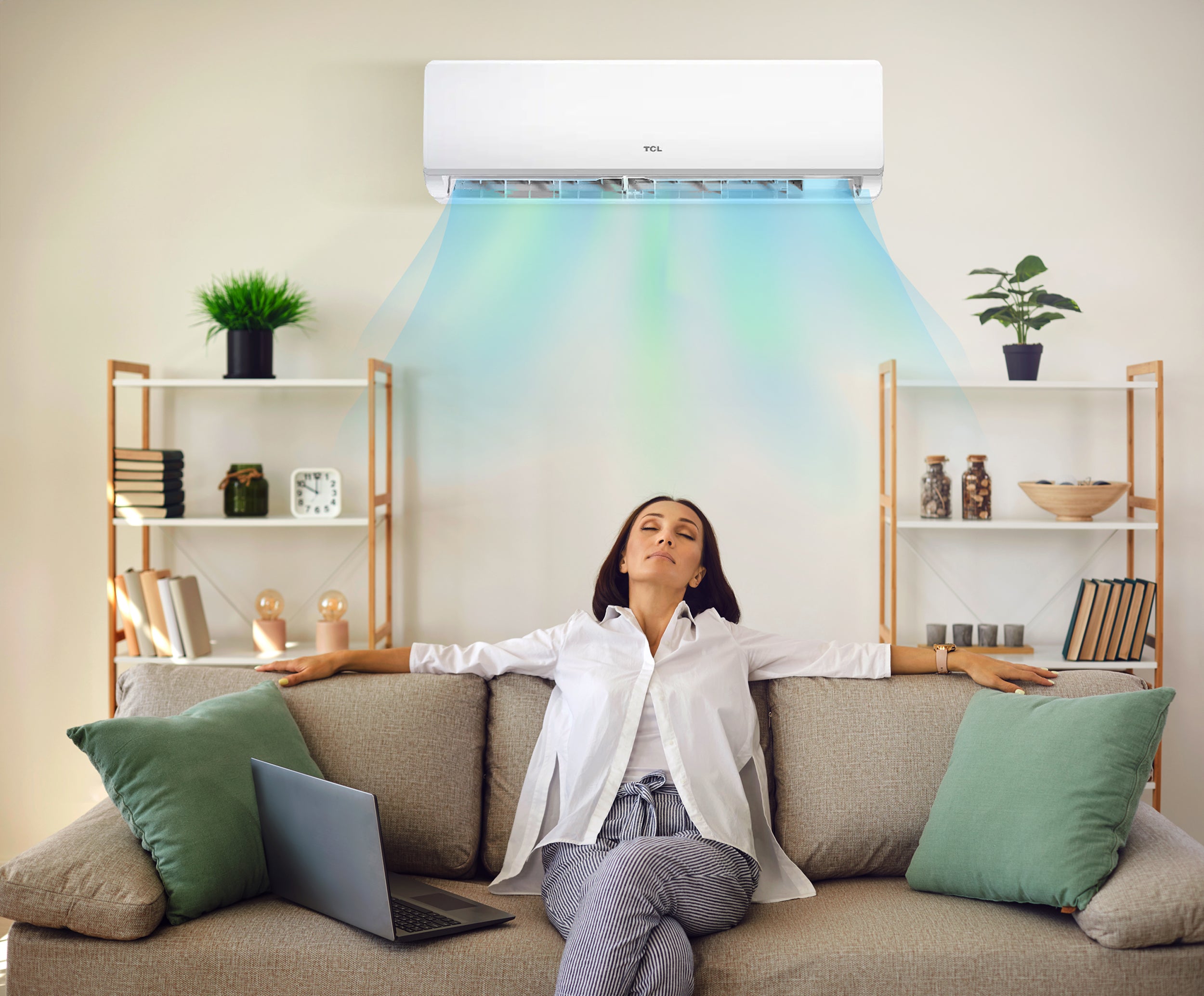If you're like most people, you probably appreciate the cool comfort that your air conditioner provides on scorching summer days. However, have you ever considered the impact of your trusty cooling companion on indoor air quality? In our quest for thermal relief, we often overlook the subtle but significant ways in which air conditioning units influence the air we breathe within our homes. In this exploration, we unravel the hidden effects of air conditioning systems, with a special focus on renowned brands like TCL and Hoover air conditioners. Read on to understand how these coolers can shape the quality of the air circulating in your living spaces. And fear not, because, at Jashanmal, we're here to guide you towards solutions that not only beat the heat but also prioritize the well-being of your indoor environment. Let's delve into the intricacies of air purity and discover how your cooling choices can make a world of difference.
The Mechanics of Cooling: The Role of Air Conditioners

Controlling the ambiance of a space, room air conditioners meticulously manage both temperature and humidity. Their operation begins by drawing in warm air, extracting excess moisture, and subsequently circulating the rejuvenated, cool, and dehumidified air throughout the living area. Beyond merely ensuring comfort, this intricate process sets in motion a chain of events that significantly impact the overall air quality, shaping the very air we inhale.
|
Discover TCL Air Conditioners |
|
Explore Hoover Air Conditioners |
Moisture Matters
An aspect frequently underestimated is the critical role of dehumidification. Beyond mere cooling, home air conditioners play a pivotal role in moisture extraction, effectively thwarting the development of mold and mildew. This function takes on added significance, especially in regions characterized by high humidity, where excessive moisture becomes a breeding ground for respiratory challenges.
Airborne Particulate Matter and Allergens
Indoor environments often host a variety of airborne particles, including dust, pollen, and pet dander, which serve as prevalent pollutants. The importance of central air conditioners comes to the forefront through their integral air filtration systems, actively working to diminish the concentration of these particles. Yet, the efficacy of this filtration process hinges on the choice and upkeep of the filter employed. The type of filter and its regular maintenance are crucial factors influencing the extent to which AC units can successfully improve indoor air condition by mitigating the presence of these common pollutants.
The Filter Dilemma
Although standard filters are adept at capturing larger particles, they might lack effectiveness when it comes to trapping finer particles that could potentially pose health risks. A notable improvement can be achieved by transitioning to high-efficiency particulate air (HEPA) filters, which markedly elevate the air filtration process by capturing particles as minuscule as 0.3 microns in size. This upgrade ensures a more comprehensive and thorough appliance filtration.
Chemical Compounds: The Unseen Threats
Volatile Organic Compounds (VOCs)Air conditioners extend their leverage beyond temperature control by actively managing the composition of indoor air. Beyond their role in managing airborne particles, HVAC systems assume a crucial function in modulating the concentrations of volatile organic compounds (VOCs). These compounds, released as gases from everyday household items like cleaners, paints, and furniture, wield the potential for both immediate and lasting health effects.
The Role of Ventilation
Proper air conditioner ventilation is key to diluting and removing pollutants, including VOCs. Unfortunately, in an effort to enhance energy efficiency, many modern buildings are constructed with airtight seals that can limit natural ventilation. This is where a balanced approach is essential, combining HVAC air conditioning for temperature control with sufficient ventilation for fresh air exchange.
Respiratory Implications
The significance of the relationship between air conditioners and indoor air quality becomes particularly paramount for individuals grappling with respiratory conditions like asthma or allergies. While filtration systems play an essential role in minimizing exposure to allergens, the delicate balance tilts when maintenance is neglected, potentially fostering the buildup of mold and bacteria. This unintended consequence highlights the need for meticulous care and attention to ensure that air conditioners actively contribute to respiratory well-being rather than inadvertently exacerbating existing issues.
Maintenance Matters
Regular maintenance of air conditioning systems is imperative for optimal performance and air hygiene. This includes cleaning or replacing filters, checking for buildups, and inspecting ductwork for contaminants. Neglecting these tasks can result in a decline in IAQ and potential health risks.
Sustainable Cooling Practices
With an increasing awareness of environmental concerns, there is a growing need for cooling solutions that align with sustainability. HVAC air conditioners designed for sustainability and equipped with eco-friendly refrigerants are becoming more sought after beyond merely lessening the carbon footprint.
Smart Cooling for Smart Living
The integration of smart technologies in air conditioning systems allows for precise control and monitoring. Smart thermostats, air freshness sensors, and adaptive cooling can create a customized and efficient indoor environment while minimizing energy consumption.
In the quest for comfort, it is mandatory to acknowledge the critical impact Hoover and TCL split air conditioners can have on indoor air quality. These systems wield a profound authority on the air we breathe. It is essential to comprehend the mechanics, approach maintenance with diligence, and adopt sustainable practices to strike a harmonious balance where cool comfort aligns with a healthy living environment. For more information on optimizing indoor air quality, please visit our website at Jashanmal and feel free to reach out to us for expert guidance. After all, the air we breathe indoors should be as invigorating as the temperature it sustains.


